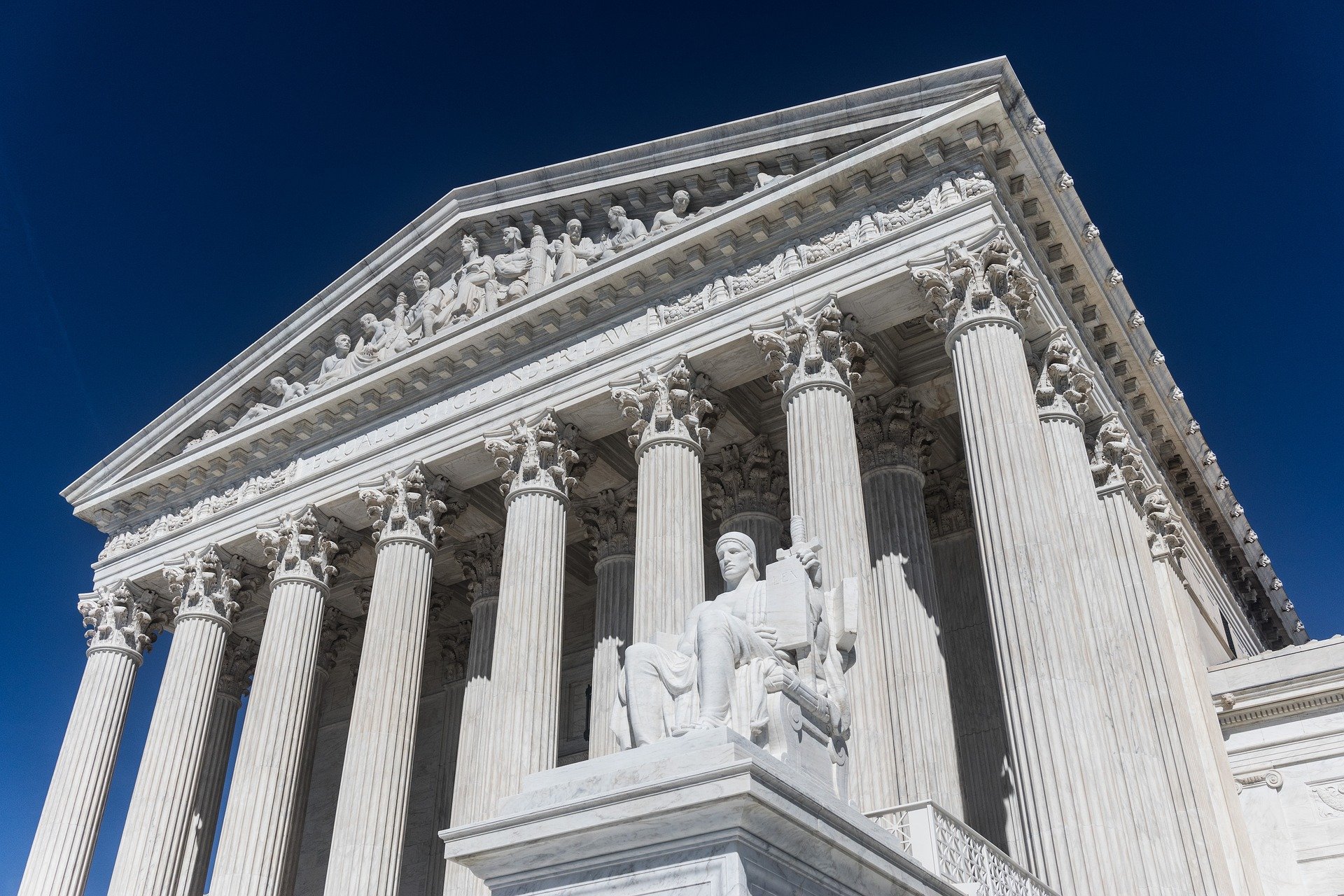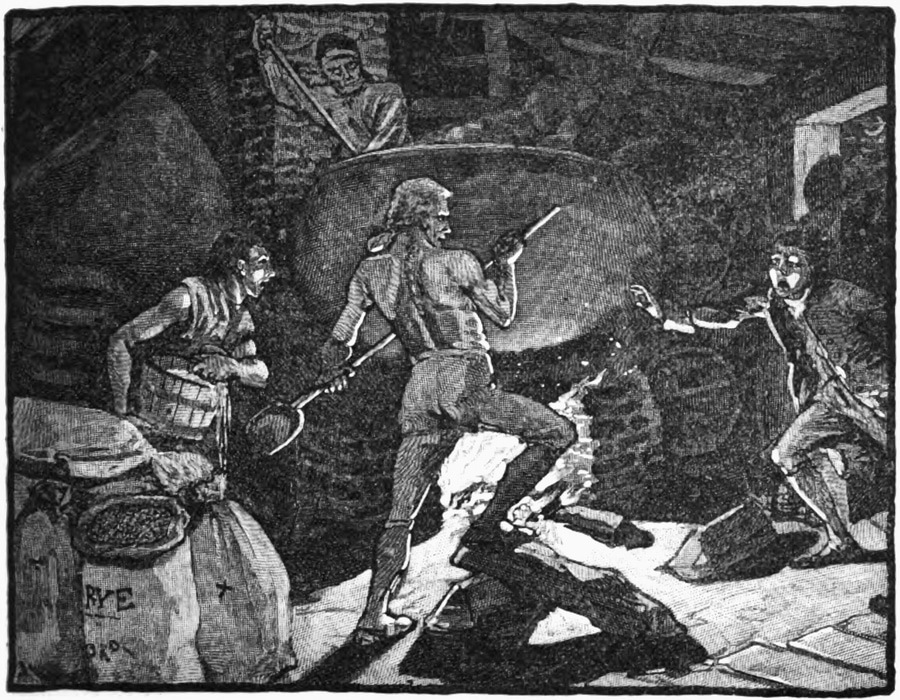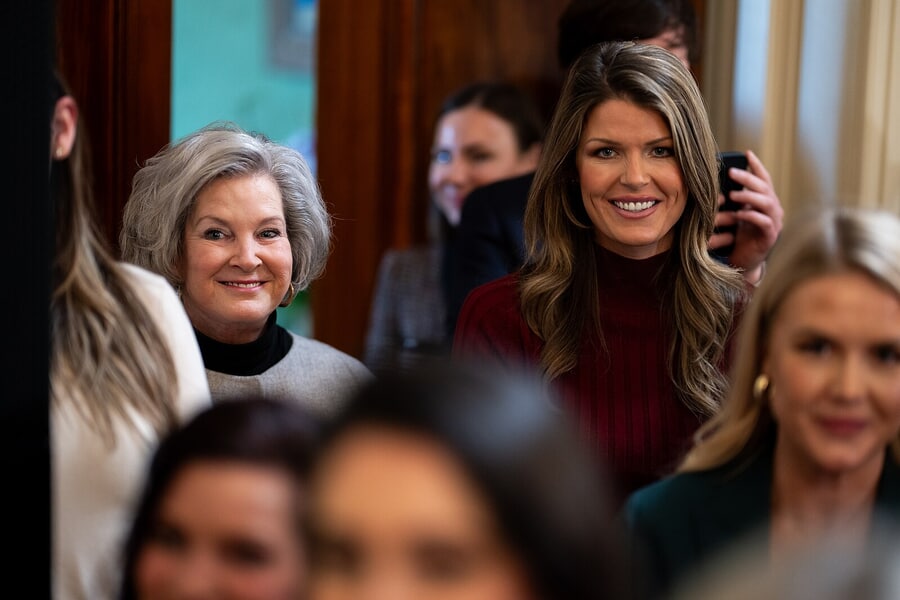Catastrophizing the Oral Argument in Trump v. U.S.
No, the justices were not normalizing the president as a crime boss.

Published by The Lawfare Institute
in Cooperation With

I have never seen such catastrophizing about a Supreme Court oral argument as the reaction to last week’s argument in Trump v. United States. Critics charged the Court was “normalizing in real time the profoundly un-American picture of president as crime boss liberated from all legal constraints” and that the conservative justices appeared to be “almost openly colluding with Donald Trump, reconceptualizing the president in real time as a sort of lawless dictator and just ignoring all constitutional, textual, historical evidence that points in the other direction” and “very clearly choosing Trump over our institutions.” These and many similar criticisms find no basis in the oral argument. (For more sober analyses of the oral argument from a range of perspectives, see here, here, and here.)
Trump v. United States is the first time the Court has ever faced the question of how criminal law applies to the president. It was thus entirely legitimate for the Court to ask, even on the extreme facts of the Trump case, how the answer to that novel question will impact, and possibly unduly burden, future presidents. You don’t need to take my word for this. The counselor to the special counsel who argued the case, Michael Dreeben, acknowledged at oral argument that the risk to the presidency from applying vague criminal statutes “is very serious, and, obviously, it is a question that this Court has to evaluate.”
Indeed, the special counsel’s brief (like its brief going back to the district court) was preoccupied with allaying concerns about the very risks that the critics deem illegitimate to ponder. The brief noted the need to protect “the effective functioning of the Presidency” and “the President’s ability to carry out his constitutionally assigned functions,” as well as the importance of “safeguards against groundless prosecutions.” Much of the brief was devoted to these safeguards—institutional checks within the Justice Department, the grand jury, “due process protections to guard against politically motivated prosecutions,” and “existing principles of statutory construction and as-applied constitutional challenges”—including a “public-authority defense,” a canon of construing statutes “to avoid a serious separation-of-powers concern,” and a declaration that some applications of criminal statutes would be unconstitutional. This was the terrain on which much of the oral argument took place—terrain that Dreeben rightly came prepared to address, and entirely legitimate terrain for the Court to consider in a case of first impression on an issue of such vast long-term institutional importance.
The critics appear to believe that these issues lack salience. Trump did horrible things; there is no argument for protecting what he did; and the “D.C. Circuit’s emphatic, cross-ideological decision should have been summarily affirmed by SCOTUS within days,” as Dahlia Lithwick and Mark Joseph Stern maintained.
The decision below was indeed emphatic and cross-ideological; but its reasoning was undisciplined and its implications were far-reaching. A summary affirmance would have had horrible implications for the presidency.
The D.C. Circuit ruled as follows:
The separation of powers doctrine, as expounded in Marbury and its progeny, necessarily permits the Judiciary to oversee the federal criminal prosecution of a former President for his official acts because the fact of the prosecution means that the former President has allegedly acted in defiance of the Congress’s laws. ... Here, former President Trump’s actions allegedly violated generally applicable criminal laws, meaning those acts were not properly within the scope of his lawful discretion.
In short, a president receives no protection from prosecution as long as the prosecutor charges the president with violating “generally applicable criminal laws.”
Chief Justice John Roberts at oral argument expressed “concern” about the first sentence of this passage, which he stated was “the clearest statement of the court’s holding.” He asked Dreeben if he agreed with it. “I would not suggest that that’s either the proper approach in this case or certainly not the government’s approach,” Dreeben quickly retorted. The government, in short, did not defend a central ruling below (although it did say it was defending the judgment). That concession alone justifies the Supreme Court taking the case that the critics thought did not warrant review. And it gives justification to the chief justice’s question: “[W]hy shouldn’t we either send it back to the court of appeals or issue an opinion making clear that that’s not the law?” That is a perfectly legitimate option for the Court in a case of this significance.
But imagine that the D.C. Circuit opinion that the government does not defend had remained the law of the land. Further imagine that on Jan. 20, 2025, Donald Trump becomes president. Recall that Trump stated in June 2023 that if elected, he would “appoint a real special ‘prosecutor’ to go after the most corrupt president in the history of the USA, Joe Biden, [and] the entire Biden crime family.” Recall also that Trump advisers have pledged “paradigm-shifting” theories to eliminate the norms of Justice Department independence from the president.
In this scenario, the proposition that a president receives no legal protection if he is charged by the prosecutor with violating “generally applicable criminal laws” takes on a different valence. The example puts in nice context Ruth Marcus’s criticism that “[t]he conservative justices’ professed concerns over the implications of their rulings for imaginary future presidents, in imaginary future proceedings, seemed more important to them than bringing Trump to justice.” With Trump up in the polls, one does not have to try very hard to imagine this future. The important point is that the justices need to think through all plausible implications of their ruling. Focus on future implications does not imply, as the critics charge, that the justices were minimizing the significance of Jan. 6.
The critics also charged that the conservative justices in their questions implied that the Justice Department prosecution of Trump was politically motivated. Nothing in the oral argument transcript supports this charge. The justices did probe the government’s claim that a president would receive adequate protection from Justice Department institutional norms and a grand jury screen. But in this context and in other questions to Dreeben about the larger implications of the Trump prosecution, several justices made clear that they were not implying anything untoward in the present case.
Nor did any justice express support for Trump’s very ambitious absolute immunity claims, much less glorify Trumpian authoritarianism or imply impunity for Trump. These latter charges cannot be squared with Justice Neil Gorsuch getting Trump attorney John Sauer to acknowledge that Trump gets no immunity for private acts; with Justice Clarence Thomas more significantly getting Sauer to concede that such private acts include acts the president took as a candidate; with Justice Amy Coney Barrett even more significantly getting Sauer to acknowledge that many of the allegations in the indictment are private acts (and thus receive no immunity under Sauer’s view of the law); with the chief justice’s hard question to Sauer about how the Court should rule if a president appoints an ambassador in exchange for a bribe; with Justice Samuel Alito’s asking Sauer why a rule of qualified immunity—which would not protect a president from prosecution for clearly illegal acts—wouldn’t suffice to protect presidential prerogatives; or with Justice Brett Kavanaugh pressing Sauer on why a president should receive immunity if Congress expressly applied a criminal law to the president.
Yes, some of the conservative justices in testing the government’s arguments pressed Dreeben on why a president should not receive various forms of protection from prosecution, just as some of the justices, conservative and liberal, pushed Sauer hard on the implications of his theory. This is normal stuff at oral argument.
And the justices’ questions extracted important concessions. I have already noted that Sauer under questioning from several justices conceded that many and perhaps most allegations in the indictment get no immunity. As Steve Vladeck notes, belying the catastrophizers, Sauer here “effectively concedes that, even if the Supreme Court recognizes some kind of ‘official act’ immunity, the January 6 prosecution can still go forward, at least in part.”
Dreeben for his part refused to defend what the chief justice described as the holding of the court below. Perhaps more significantly, he acknowledged that the Court has discretion now to address the constitutionality of the criminal statutes as applied to the president (an issue I discussed here), and could “craft procedural rules that implement its Article II concerns” as a threshold issue in the trial court subject to interlocutory appeal. (Marty Lederman makes a version of this point.) Dreeben also conceded that motive analysis might come into play in the government’s proposed separation-of-powers analysis (which, as Dreeben realized in trying to minimize the concession, weakens the analysis’s attractiveness as a protection for presidential power), and that the possibility of applying 18 U.S.C. § 371 to false presidential statements to Congress “merits some serious and nuanced consideration.” (Rick Pildes notes other concessions by the government that in the aggregate amount to “a significant number of limitations on potential criminal prosecutions of ex-Presidents.”)
These are important concessions from both sides that will help the Court in crafting the right rule. And that is the central point of oral argument.
One thing the critics are probably right about is that the oral argument made it seem very unlikely that Trump would be tried for the Jan. 6 matters before the election. The justices are unlikely to rubber-stamp the case below, especially after Dreeben’s exchange with Chief Justice Roberts about the government defending the judgment below but not its central reasoning. And just about every one of the dozen or so possible rulings discussed at oral argument, including the narrow ones, would require litigation on remand before trial. (Rick Pildes and Marty Lederman describe ways that the Court might rule that would allow the prosecution to proceed quickly; and the special counsel in his brief noted that “even if the Court determines that some form of official-act immunity exists and may apply to some acts alleged in this case, the Court should remand so the district court can address the issues through evidentiary and instructional rulings at trial.”)
I believe that the Court, whatever else it says, will note that Sauer does not argue for immunity for private acts and conceded that many alleged acts in the indictment were private. But even that ruling might require the trial court to determine before trial which alleged criminal acts in the indictment are private and which are official, and whether and how official acts could nonetheless be introduced at trial. And if so, that will take time.
The idea that the first prosecution of a former president could be done quickly without serious collateral litigation about the impact on the presidency was always a fantasy, even taking into account the ugly abuses of power alleged in the indictment. (This heightens the mystery of why the Justice Department delayed directly investigating Trump on this matter for more than a year.) The special counsel realized this long ago, which is why he sought certiorari before judgment in December in the hopes that the Court could consider and resolve the case quickly, giving him time on remand to sort out the inevitable follow-up issues. The Court without recorded dissent declined this request. In February, again without recorded dissent, it granted Smith’s request to review the case but declined to move it as fast as Smith wanted (though it did move it perhaps faster than normal). The critics attribute the Court’s refusal to accelerate faster to the bad-faith efforts of the conservative justices seeking to help Trump. That charge too is unwarranted, but I will have to explain why I think so another time.


.jpg?sfvrsn=8253205e_5)


